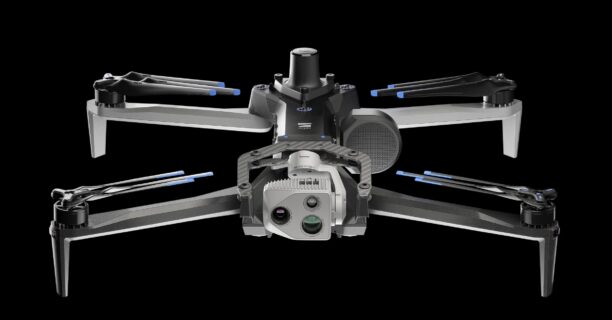New awards follow a surge in UAS procurement across the U.S. military
The U.S. Air Force has awarded Skydio two initial multi-million dollar contracts to expand the use of advanced autonomous drones across key operational units. According to the company, “Skydio, the leading U.S.-based drone manufacturer and world leader in autonomous flight technology, in partnership with ADS… today announced two initial multi-million dollar contract awards with the U.S. Air Force (USAF) to expand the deployment of Skydio systems across multiple operational units.”


These awards come during a period of fast-paced UAS procurement across the U.S. Armed Forces. The U.S. Army recently announced plans to acquire one million drones as part of a major modernization push, while other services have accelerated programs related to reconnaissance, base security, and tactical autonomy. The new Skydio contracts reflect this broader shift toward rapid adoption of uncrewed systems designed, built, and supported within the United States.
Supporting Tactical and EOD Missions
The Air Force will deploy Skydio systems to help Tactical Air Control Party (TACP) Airmen assess enemy positions, improve situational awareness, support communications, and integrate with strategic platforms. These capabilities will help TACP teams “characteriz[e] enemy order of battle” and operate more effectively in complex environments.
Explosive Ordnance Disposal (EOD) units will also increase their use of Skydio drones. The announcement states that “Skydio has also been selected as the aerial robot of choice for USAF EOD units deploying Skydio systems for both garrison operations and contingency deployments with additional systems planned over the next 18 months.”
These deployments support the Air Force’s wider effort to integrate uncrewed systems into daily mission sets. Security Forces already rely on Skydio drones for base defense and installation security, and units at Travis Air Force Base have used Skydio technology to reduce C-17 inspection times by more than 90 percent.
X10D: Autonomous Performance for Demanding Conditions
The Skydio X10D provides a combination of advanced sensors, secure architecture, and resilient autonomy built for contested environments. It includes a 48MP telephoto camera, a Teledyne FLIR Boson+ thermal sensor, all-direction obstacle avoidance, visual navigation up to 300 meters, and a proprietary zero-GPS navigation model. The aircraft is modular, weather-rated, and Blue UAS Cleared, with onboard AI that supports missions in areas with RF or GPS interference.
Expanding Military and Allied Partnerships
These Air Force awards add to Skydio’s growing role across the U.S. military. The company supports the U.S. Army’s Short Range Reconnaissance Tranche 2 program and provides systems to “special operations to conventional forces,” reflecting broad operational trust. Skydio also supports 25 allied nations and thousands of public safety and enterprise customers worldwide.
The drones are built at Skydio’s Hayward, California manufacturing facility, which the company describes as “one of the world’s largest drone manufacturing facilities outside of China.”
ADS, Skydio’s partner on these programs, supplies vetted equipment solutions to defense and federal agencies through more than 80 procurement channels.
As each service branch accelerates its adoption of uncrewed systems, contracts like these signal how autonomy, secure supply chains, and American-made platforms are shaping the next stage of military modernization.
Read more:


Miriam McNabb is the Editor-in-Chief of DRONELIFE and CEO of JobForDrones, a professional drone services marketplace, and a fascinated observer of the emerging drone industry and the regulatory environment for drones. Miriam has penned over 3,000 articles focused on the commercial drone space and is an international speaker and recognized figure in the industry. Miriam has a degree from the University of Chicago and over 20 years of experience in high tech sales and marketing for new technologies.
For drone industry consulting or writing, Email Miriam.
TWITTER:@spaldingbarker
Subscribe to DroneLife here.


